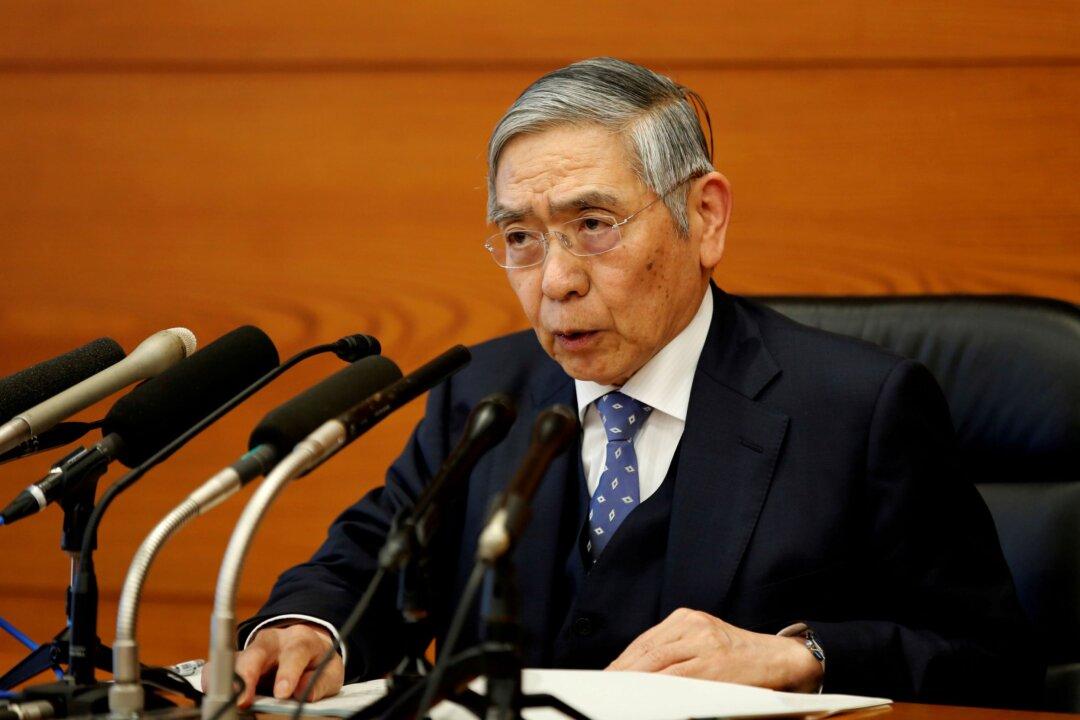TOKYO—The Bank of Japan must keep monetary policy ultra-loose as inflation remains well below that of other economies, Governor Haruhiko Kuroda said, brushing aside the view it could follow in the footsteps of more hawkish U.S. and European peers.
Mounting inflation risks have prompted central banks across the globe, including the U.S. Federal Reserve and the Bank of England, to withdraw crisis-mode stimulus measures and raise interest rates.





